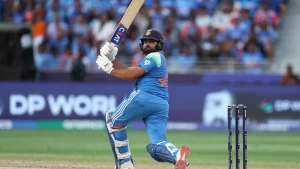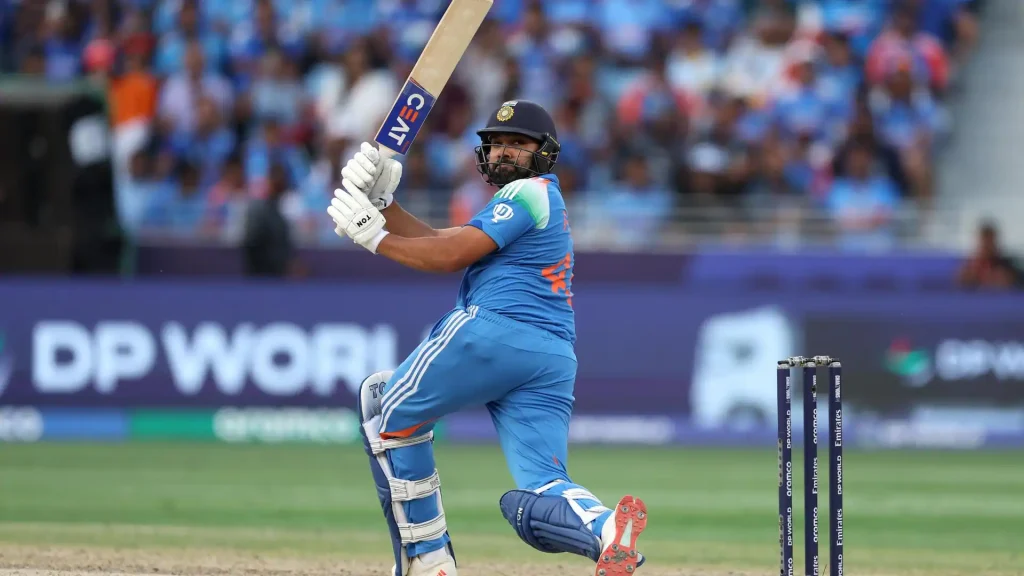
Shamik Chakrabarty, Mumbai
Sanjay Manjrekar, in his typical style, has opened up a debate — does Rohit Sharma qualify to be among India’s all-time batting greats? According to Manjrekar, he doesn’t, and the former India batter has his logic.
“Rohit Sharma does not fit in the all-time Indian batting great list because we are talking about legends like (Sunil) Gavaskar, (Sachin) Tendulkar, (Rahul) Dravid and Virat (Kohli). Rohit does not quite make it there,” Manjrekar said on The Great Indian Cricket Show on Doordarshan.
After this, the former India middle-order bat might find himself at the receiving end of trolls/abuse on social media from the so-called ‘Rohitians’. But Manjrekar, who played 37 Tests and 74 ODIs, with the Pakistan tour in 1989-90 being his crowning glory, wasn’t off the mark.
Rohit retired from Tests earlier this year with 4,301 runs, including 12 hundreds, from 67 matches at an average of 40.57. He made his debut in 2013, and for the first six seasons of his Test career, he flattered to deceive. His exceptional talent and the backing of Ravi Shastri and Virat Kohli, then India head coach and captain, respectively, had kept the Mumbaikar in the red-ball scheme of things. Any other player, and his Test career probably would have been nipped in the bud.
Then, in 2019, Shastri and Kohli took the decision to promote Rohit as an opener. It worked wonders. Between October 2019 and December 2022, Rohit scored 1,552 runs, including five centuries, in 18 Tests at an average of 55.42. He was comfortably India’s best red-ball batter during that period.
The fact of the matter is that, Rohit never had the consistency in the longer format to be included in the list of all-time greats. The first three names that Manjrekar mentioned — Gavaskar, Tendulkar and Dravid — all of them finished with more than 10,000 runs and 50-plus averages in Tests. Gavaskar did it, playing in cricket’s ‘page-age’ (he faced 71 fast bowlers in his career) without wearing a helmet. Against the mighty West Indies alone, boasting a fearsome pace quartet, he scored 13 centuries.
Tendulkar was, well, Tendulkar. And if he was John Lennon, then Dravid was his Paul McCartney, as the two, along with Sourav Ganguly and VVS Laxman, formed the Beatles of Indian batting at turn of the century.
Kohli, too, didn’t finish with 10,000 runs (he fell short by less than 800 runs) and a 50-plus average (46.85) in Tests. He unexpectedly fell off a cliff in the last few years of his Test career. But the volume of runs, the impact he made and those 30 hundreds unquestionably make him an all-time great.
Rohit’s case is completely different in white-ball cricket, ODIs in particular, where he has made 11,168 runs, including 32 hundreds, from 273 matches (and counting) at an average of 48.76. Manjrekar spoke about that. “But if you look at one-day cricket, selflessness or captainship, then you have to mention Rohit Sharma,” he said.
The 60-year-old added: “Especially after the 2023 World Cup, the love people have for him is on another level. People saw that he was never thinking about himself… He was willing to sacrifice his own interests for the team’s advantage. That’s his real speciality. His easy domination in limited-over cricket was always pleasing, almost making 300 runs in one ODI innings. But when you talk of an all-time Indian batting great, Test cricket holds more weightage. I don’t think he made a big impact in that format.”
Things need to be put in perspective. A cricketer is judged by his exploits in Tests. For example, Michael Bevan would never come within a thousand miles of Australia’s batting hall of fame despite being a generational limited-over player.
For More Sports Related News: Follow RevSportz





